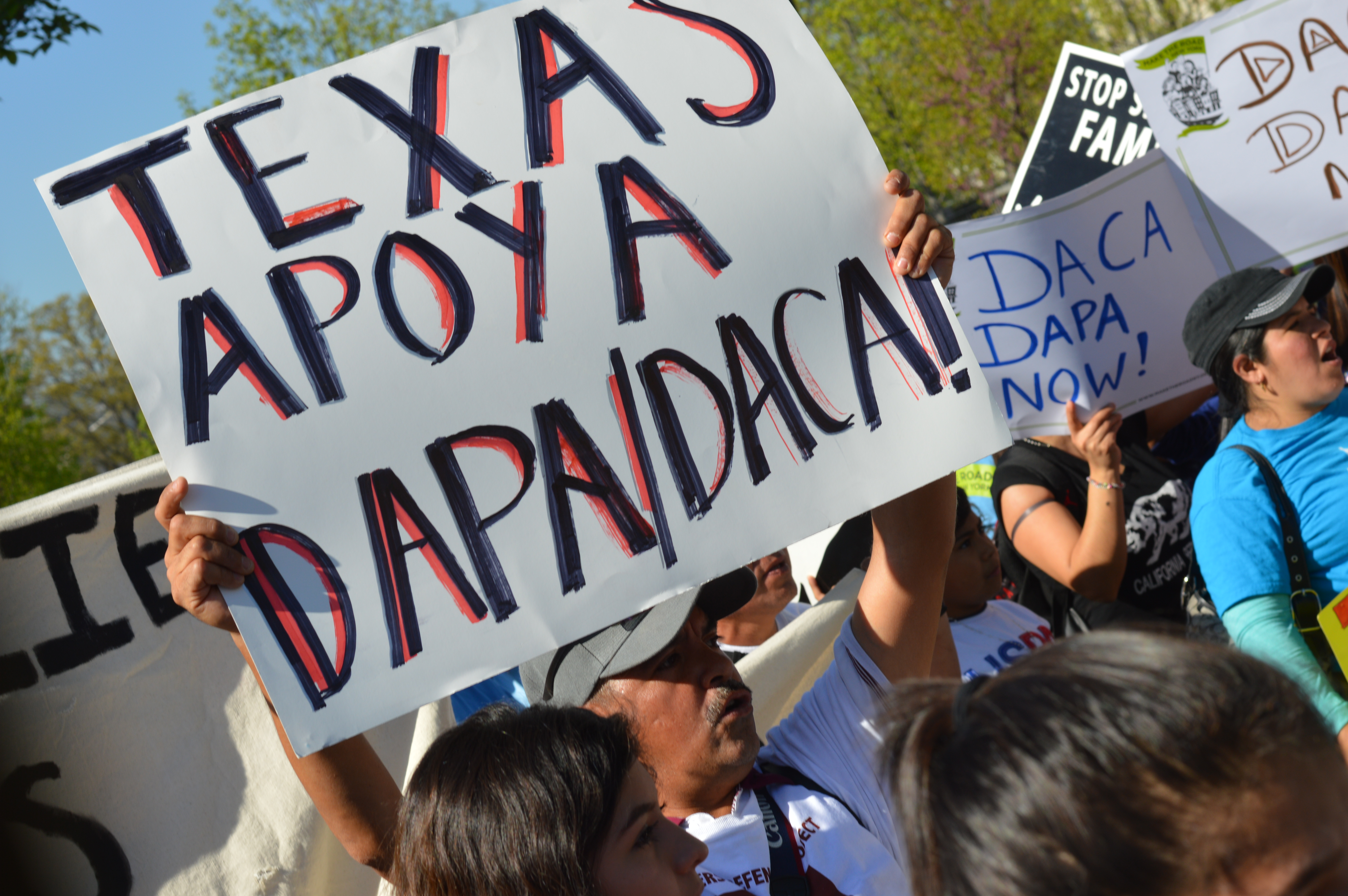
Republicans don’t like DAPA and DACA, but policy preferences have no sway before the Supreme Court.
The truth is, Republicans are trying to litigate a political dispute at the Supreme Court, and yesterday’s oral arguments proved the anti-immigrant motivation behind the case.
Maybe that’s why known hate group, FAIR, was the only organization to rally outside the Supreme Court in support of Republicans.
So what exactly are the Republicans claiming about DAPA and DACA+? David Leopold was in the courtroom and gave a quick recap of the oral arguments on Monday, April 18.
And if you’re looking to get more into the legal arguments, there are two fundamental flaws in the Republican legal case against DAPA and DACA+.
1) Republicans have no standing
Standing is the right of a party to sue in court and the Republicans don’t have it. Republicans need to have something legally redressable but their lawsuit is about a policy disagreement. David Leopold explains.
2) “Lawful presence” doesn’t exist as Republicans claim
Republicans are arguing that DAPA and DACA+ grant “lawful presence” to those that qualify for the programs. But there’s one problem with their argument. Lawful presence doesn’t exist in our immigrations laws in the way the Republicans claim it does. Unlawful presence is a technical legal term which is used to determine whether an undocumented immigrant will face the 3 or 10 year reentry bar should he or she depart the U.S.
But when unlawful presence stops—as it does when someone is granted deferred action–it doesn’t start “lawful presence” as the Republicans are trying to claim. In the case of DAPA or DACA+ it would just mean that an undocumented immigrant’s’ status in the U.S. is temporarily authorized.
No question, immigration law is very technical and can be confusing. And no question the Republicans who’ve sued to block DAPA and DACA+ have done their best to confuse the courts.
Republicans are arguing that because immigrants receive work permits and driver’s licenses through DAPA and DACA the states will experience harm because it will cost them more money to issue driver’s licenses. However, the authority, or the law, which allows immigrants the ability to work under deferred action was established over two decades ago. DAPA and DACA simply streamline the process for applying for deferred action and, if deferred action is granted, allow people to obtain temporary employment authorization if they can show the need to support themselves and their families.
David Leopold explains.
As expected, Chief Justice Roberts asked the Obama Administration some tough questions. But that’s his job. The Chief Justice holds a rigorous view of standing and despises the growing perception of a politicized Court. Those two factors, along with the deeply flawed legal arguments from the Republican Party, have us feeling pretty good about the future of DAPA and DACA+.

